THE PIG is laidback luxury in the South of England
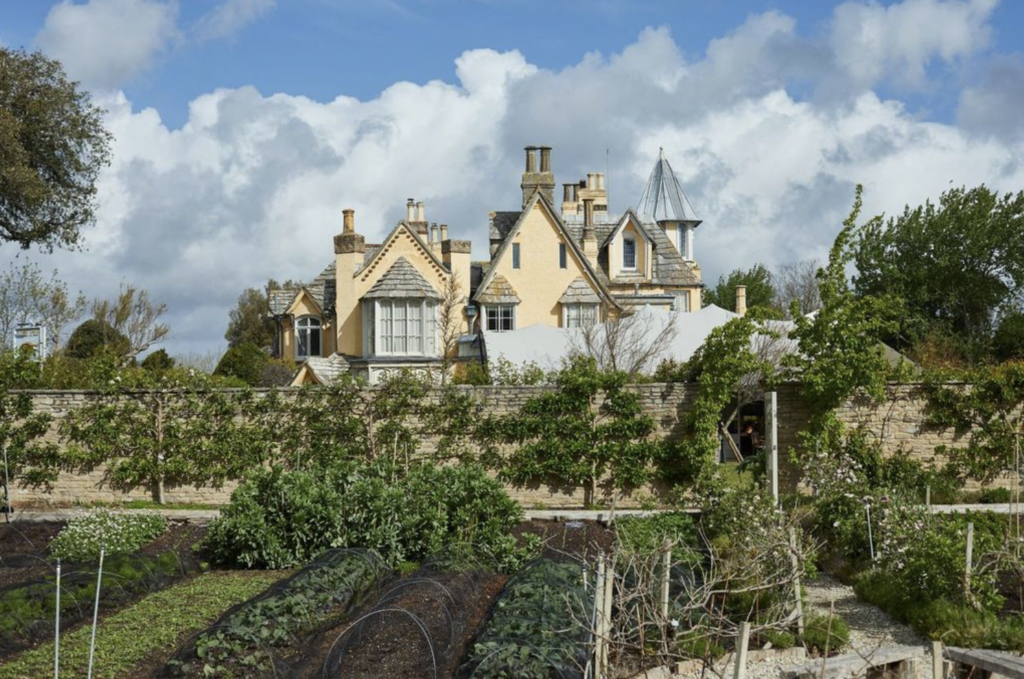
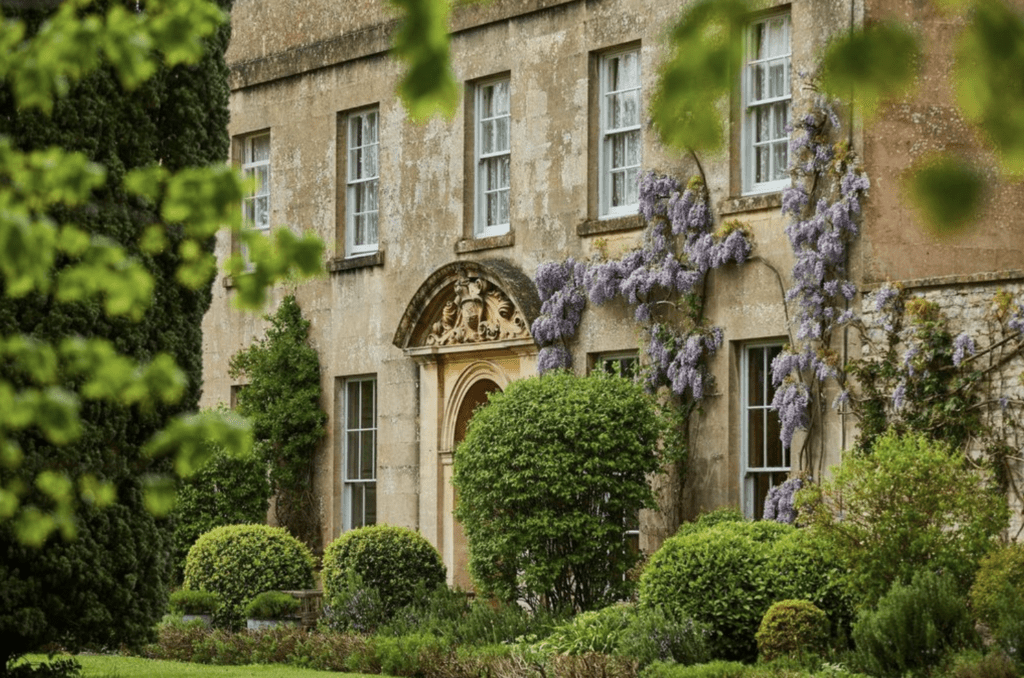
Just 20 minutes from the Bath Spa railway station, our driver turned into the grounds of the secluded Georgian manor house. If it weren’t for the sign, “THE PIG – near Bath,” it could be hard to spot. Early clusters of daffodils stood as testimony to the weather news everyone was talking about—the wettest month on record in the South of England, turning the expansive acres surrounding Hunstrete House to a deep emerald green.
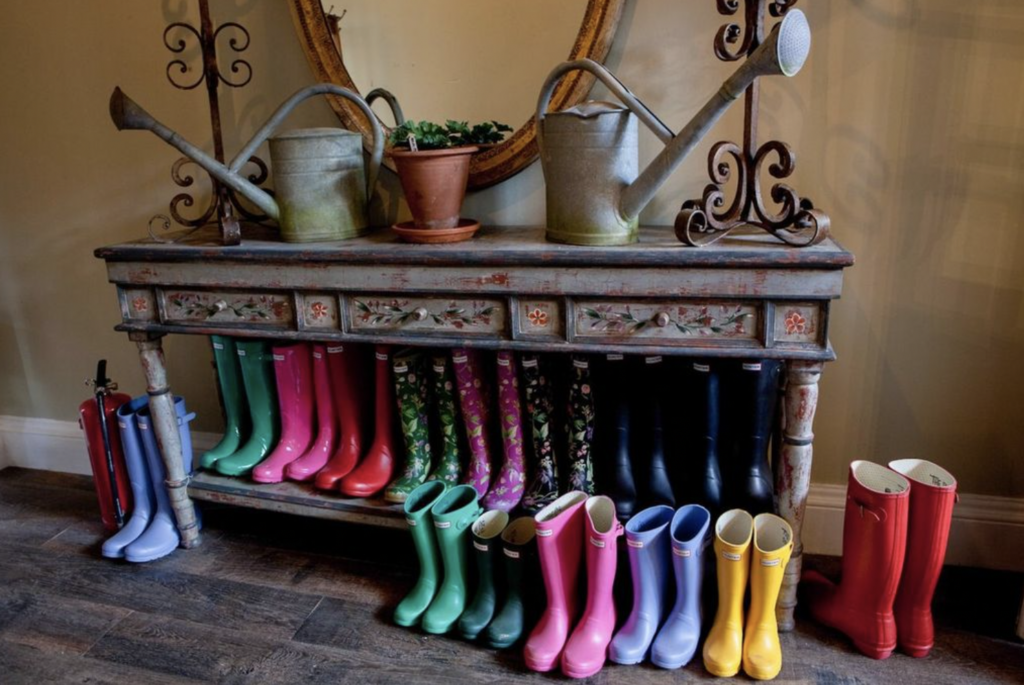
At the hotel’s entry hall, all sizes of Hunter Wellington mud boots are thoughtfully provided for guests’ use. Inside, there’s a warm greeting from reception staff at this mellow, honey-colored stone manor house. Peeking at the billiard room, old dining room, the bar, and several more lounges with crackling log fires, I found them delightfully buzzing with family activity on English Mother’s Day.
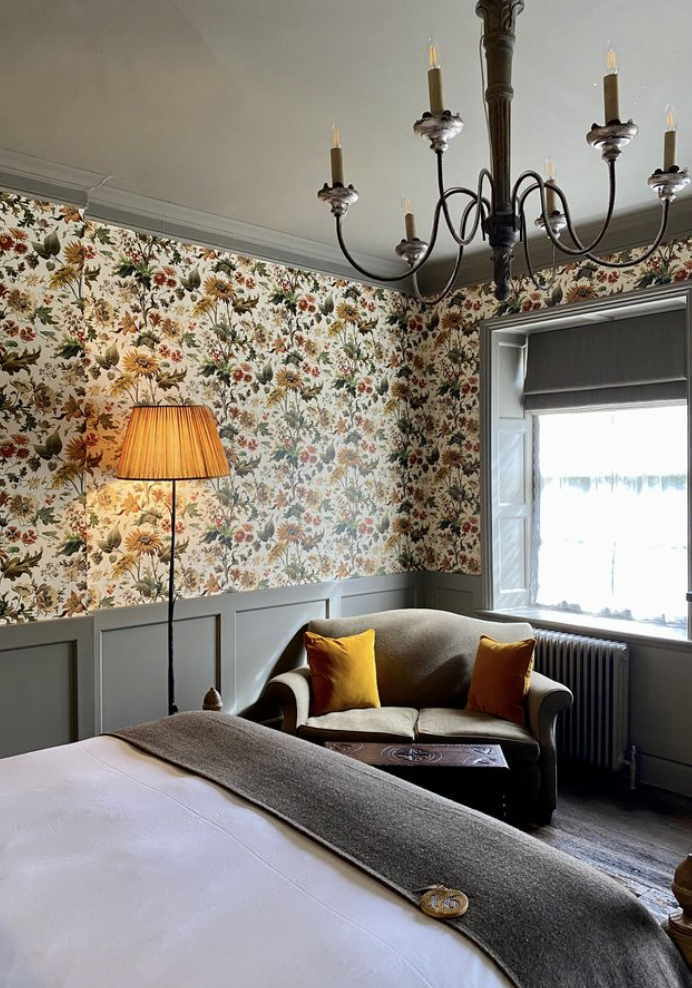
After collecting the key to room 16, I settle comfortably into an oversized yet cozy first floor guest room with sunflower wallpaper and a freestanding roll top bathtub as well as a big monsoon rainfall shower. Gently pulling back a lacy curtain from the period sash window for a look at the view, I spot signs of spring: brave crocuses popping up in the meadow where a herd of deer browse beyond the period walls of a working kitchen garden.
Restaurants with Rooms
Tucked into Somerset’s Mendip Hills, this romantic 1820 estate of 29 guest rooms belongs to THE PIG, a collection of eight laid-back, historic English country house hotels, each with a garden-to-plate destination restaurant. In fact, a bountiful kitchen garden is the heartbeat of every location.
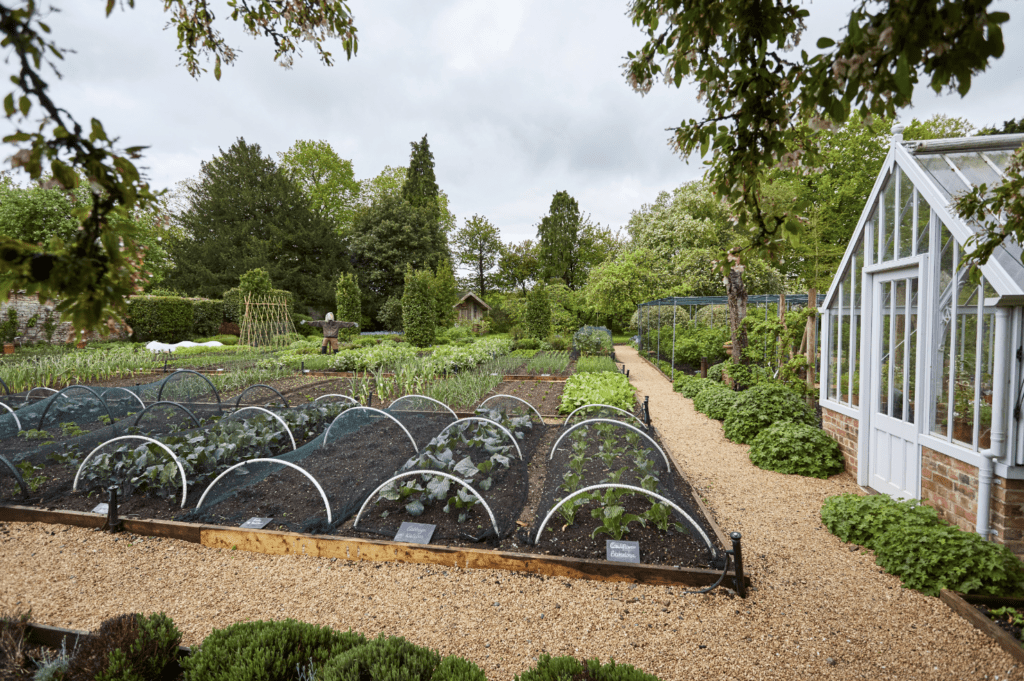
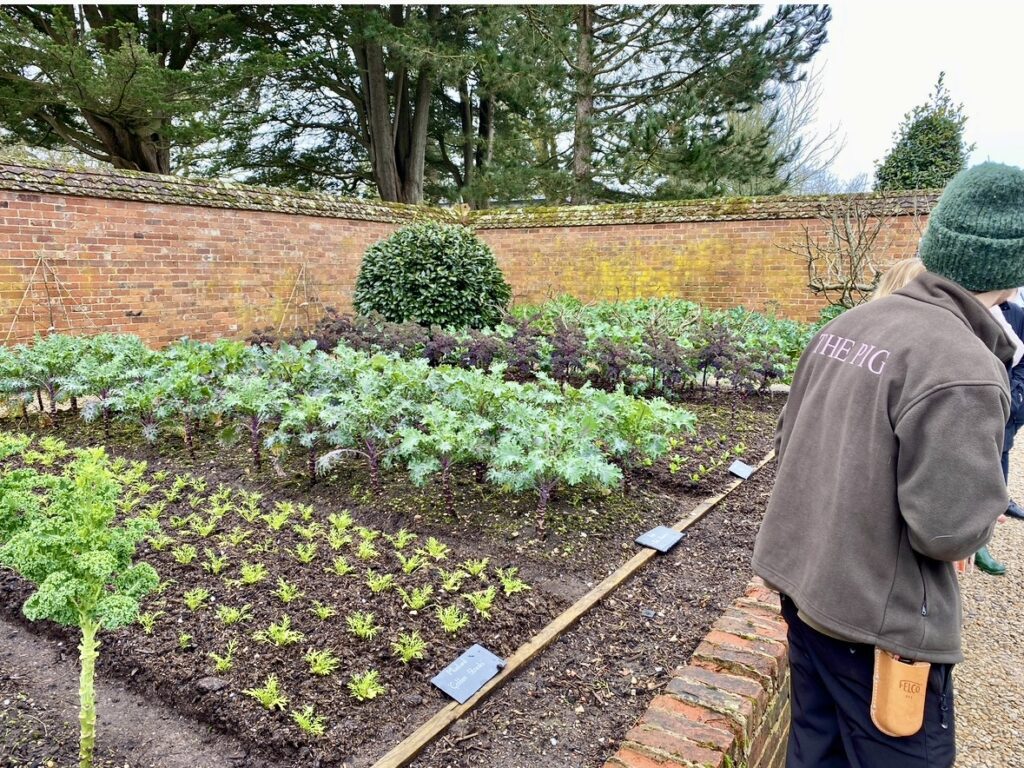
In 2011, when husband-and-wife co-founders Robin and Judy Hutson opened the original Pig, they put kitchen garden food at the center of their business, calling the concept “restaurants with rooms.”
Before heading into town to visit Bath Abbey and the ancient Roman baths, there’s an opportunity to chat with CEO Tom Ross in the residents’ snug. Feeling comfy on a velvet sofa beside the fireplace, he explained how THE PIG got its name (to make typically formal British country house hotels feel more approachable, like a pub) and why the brand’s foundational pillar is delicious, home-grown food rooted in the English countryside.
The 25-Mile Menu
Pinching aromatic sprigs of spearmint and chocolate mint, head kitchen gardener Zack Jones and head chef Sophie Fenlon guide an informative morning walk through the walled kitchen garden and beyond. They work hand in hand on a daily changing menu featuring wild, seasonal produce grown here and supplemented by a community of local purveyors—farmers, fishermen, foragers—all within zero to 25 miles.
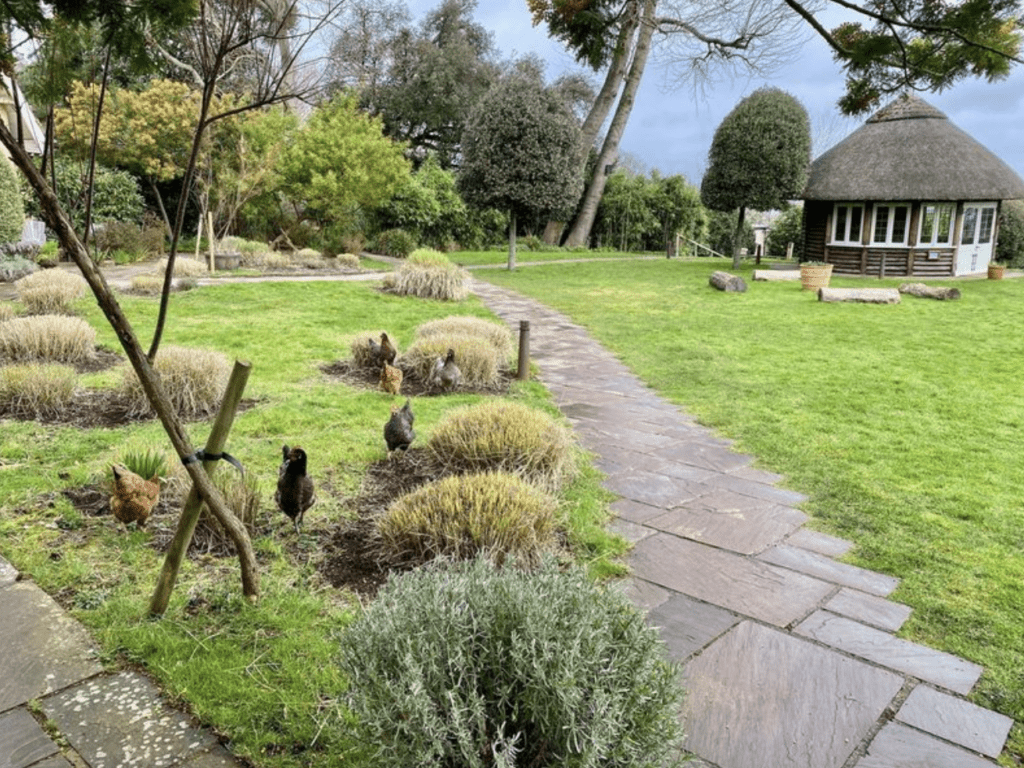
In addition to visiting frolicking pigs, I saw chickens and quail, bee hives, a mushroom house, poly tunnels, original greenhouses, fruit cages, a smoke house, and a wood-fired oven. Secluded in the foliage are two renovated potting sheds used as spa treatment rooms where guests choose from a menu of fresh infusions, botanical ingredients, and aromatherapy oils.
The Vibe
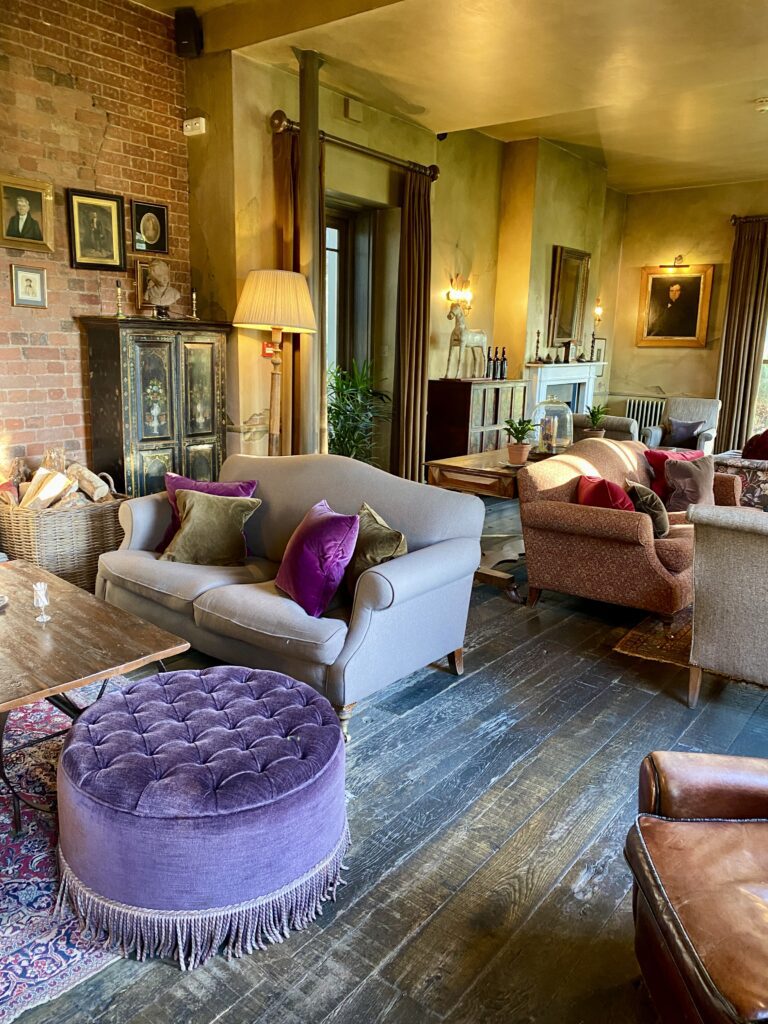
Be banned, minimalism! Each of THE PIG locations is rooted in its surrounding countryside and oozes a characterful sense of place in some of the prettiest settings in England. The much-loved interiors are a higgledy-piggledy mash-up of mismatched china, shabby chic vintage furniture, and eclectic pieces that make you want to move in for good. As interior designer Judy Hutson said, “Imagining different characters brings each house alive. We like each of our places to have its own identity, but because they are all related, they have some things in common, too.”
Although it’s fun to debate the personal pros and cons, trying to choose a favorite among THE PIG hotels is like trying to choose a favorite grandchild.
Find Your Pig
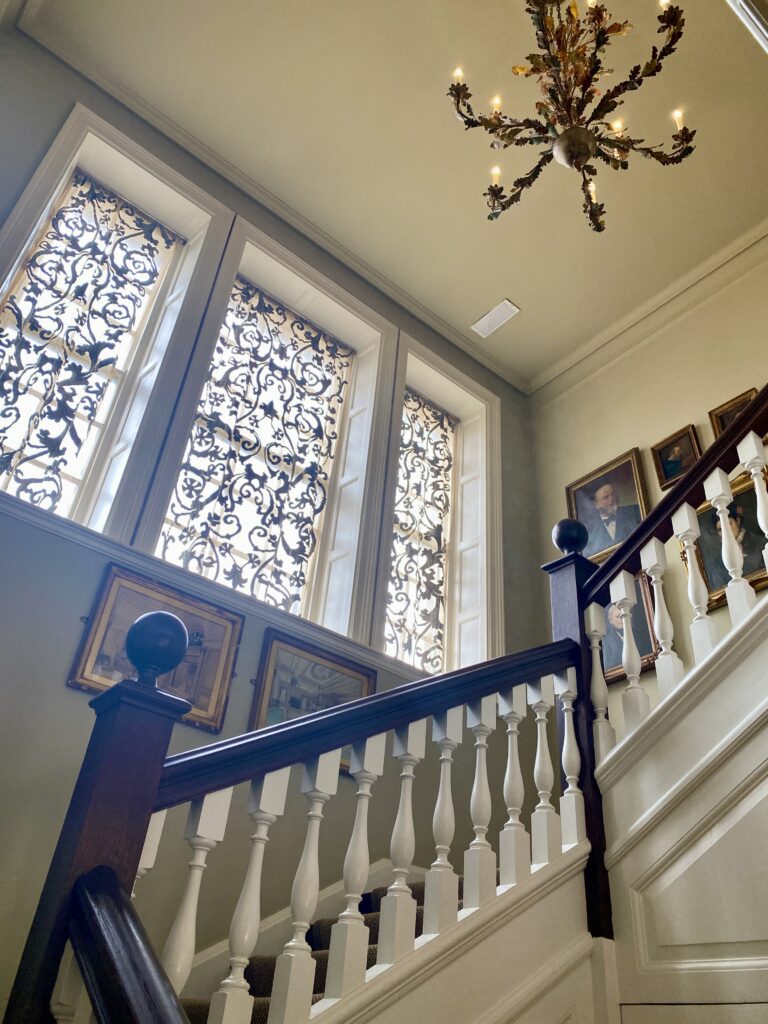
If you go, know this: You cannot go wrong. The surroundings are dreamy, the food is delightful, and the staff are competent and charming. THE PIG shows off the beautiful British countryside at its (unstuffy) best, so simply pick your PIG. For example, in Studland Bay bordering the English Channel, you’ll find unspoiled views of the sandy Dorset coast at THE PIG-on the Beach. Walk to Old Harry Rock on the Jurassic Coast and explore the nearby ruins of 11th century Corfe Castle. In Cornwall, THE PIG-at Harlyn Bay has far-reaching sea views from a 15th century manor house just 10 minutes from the beach in Padstow.
Expanding the litter to 11 properties, three more country houses have been selected as THE PIG’s next siblings. Two are coming in 2024: one in Shakespeare country at Stratford-upon-Avon and another in a quintessential Cotswold village. Tom gives assurances that each new opening has been rigorously vetted and passed the “darling” test, which is a measure of romantic appeal as in “Darling, when shall we book our next stay at THE PIG?”
Set-Jetting in Britain
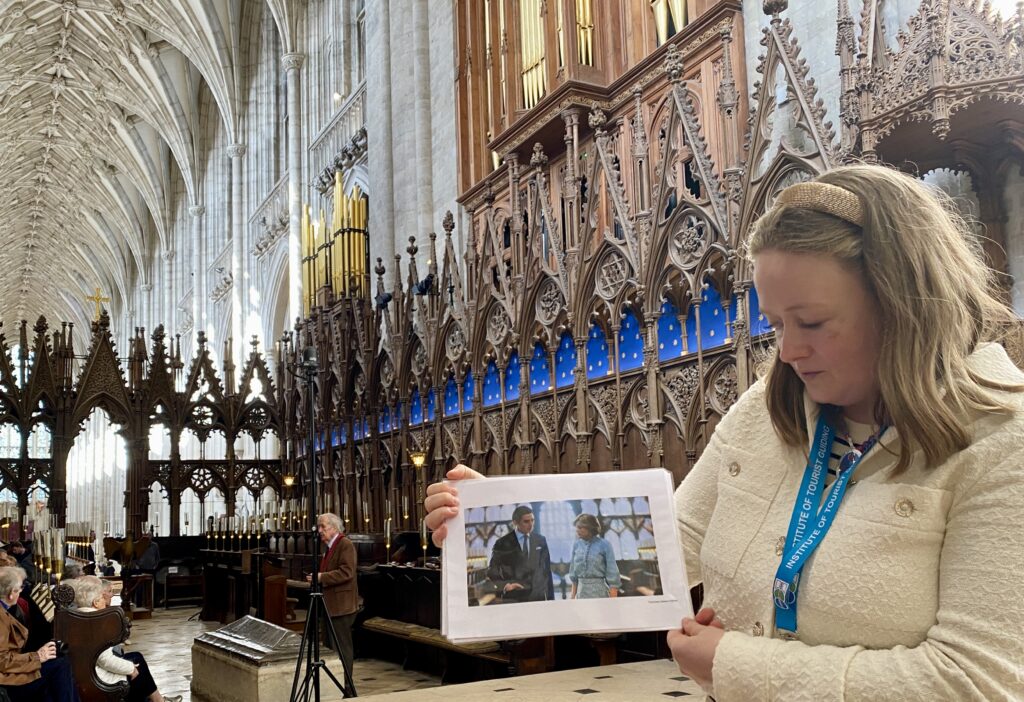
Fascination with this stunning corner of Southeast England has soared lately, due in part to the phenomenon known as “set-jetting”—that is, visiting real life set locations of made-for-television series and big screen films. Research from VisitBritain shows that films and TV are powerful motivators for travel, so the destination organization has long been promoting these locations, from Jane Austen to James Bond and Harry Potter to Paddington Bear.
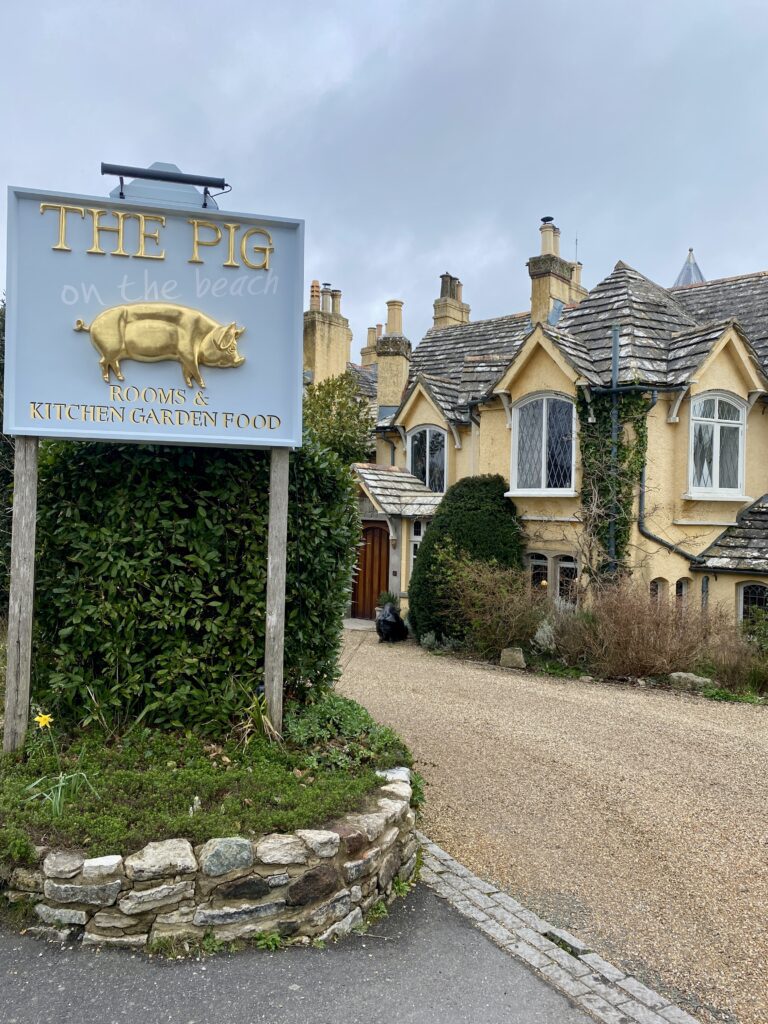
I was fortunate to make three rural getaways to THE PIG: 1) near Bath by the Cotswolds; 2) in the New Forest near Winchester; and 3) near Studland and Lyme Regis in Dorset. From medieval cathedral to windswept coastline, each was convenient for exploring film locations for The Crown, Wonka, Bridgerton, Bedknobs and Broomsticks, Ammonite, Broadchurch, The French Lieutenant’s Woman, On Chesil Beach, Nanny McPhee, and Dunkirk, among others. Jane Austen stories filmed in Lyme Regis include Persuasion, Emma, and Mansfield Park. Approaching the 250th anniversary of the birth of Jane Austen, the celebrated English novelist, interest remains strong into 2025 and beyond.
Photos: Courtesy of THE PIG and the author
